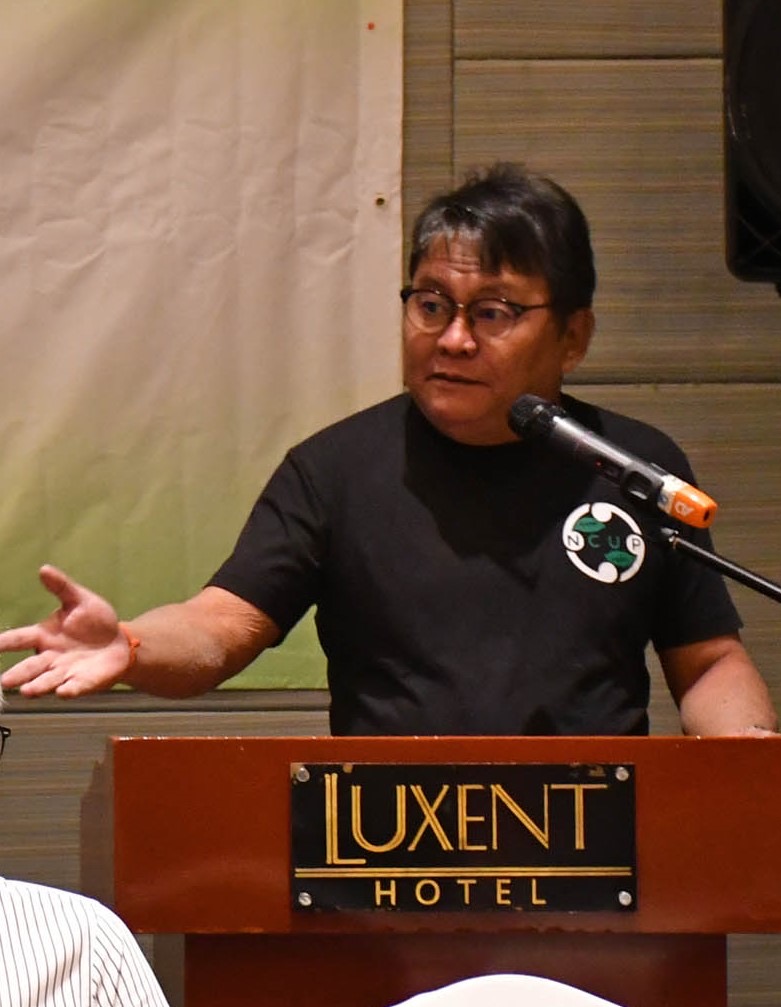Armed groups turning to cigarette smuggling, a national security threat
A consumer advocacy group expressed fears that the pervasive problem of illicit cigarette trade in the country will escalate into a national security crisis with the numerous reports and studies establishing the link between the illegal activity and armed groups involved in terrorism and other criminal activities.

Antonio Israel
Antonio Israel, one of the lead convenors of the online advocacy campaign “EKIS saSmuggling” and president of the Nicotine Consumers Union of the Philippines, expressed shock at the revelation of an international security expert in a recent forum in Makati City that former members of various armed groups in Mindanao turned to smuggling operations to finance their criminal activities.
Professor Rohan Gunaratna from the S. Rajaratnam School of International Studies in Singapore said during the "PROTECT 2023: Doing Business Amidst New Threats" conference held at the New World Hotel in Makati City, that while authorities dismantled the structures of the Abu Sayyaf, Bangsamoro Islamic Freedom Fighters and ISIS in Mindanao and neutralized their leaders, remnants of the group were transitioning from terrorism to crime. “Terrorism is no longer the real monster in the Philippines; crime is," he said.
“It is worrisome that armed groups in Mindanao continue to harm national interest by masterminding and perpetuating illicit trade of agriculture products and cigarettes. The billions of pesos generated from smuggling can be used to fund unimaginable crimes that threatens our national security. Prof. Gunaratna also revealed that these armed groups were in cahoots with high-ranking officials within the Philippine police and military to facilitate and safeguard their illegal operations,” Israel said.
Prof. Gunaratna said cigarette smuggling has become an immensely lucrative source of income for various armed groups in Mindanao as they transitioned from acts of terrorism to engaging in illicit trade.
Israel stressed the urgency to address the smuggling problem in the country. “If this report is true, smuggling could sustain the presence of these armed groups as well as their terror and criminal activities. The professor’s revelations only proves that tobacco smuggling is not a victimless crime. Real lives are at stake here if these illegal activities continue,” he said.
Israel also underscored that illicit tobacco trade “deprives the government of much-needed revenues, hurts Filipino farmers and local industries as well as threatens the health of consumers because contrabands are not subjected to safety inspection and regulation.”
He appealed to the “national government, local government units and the public as a whole to work together to put a stop to the massive illicit cigarette trade via the backdoors of Mindanao, resulting in billions of lost revenues for the government and displacing the livelihood of local farmers and industry workers.”
Professor Gunaratna said discussed how remnants of former armed groups were transitioning from terrorism to crime during a thought leaders round-table discussion on national security issues on the second day of the conference. Among the topics under discussion were smuggling, counterfeiting, human trafficking, infiltration of business and government (fraud), and money laundering, with a focus on cross-border crimes and the use of technology by criminals and terrorists.
The PROTECT conference was initiated in 2005 by Leverage International (Consultants) Inc., in collaboration with the Anti-Terrorism Task Force Security and Safety, later known as the Anti-Terrorism Council. This response was prompted by the escalating threat of terrorism in the wake of the 9/11 terrorist attacks on the World Trade Center in New York.
The conference, held on September 28 and 29, included the participation of high-ranking government officials, including National Security Adviser Secretary Eduardo Ano, Supreme Court Chief Justice Alexander Gesmundo, Health Secretary Teodoro Herbosa, and former AFP Chief of Staff Gen. Benjamin Defensor. Leaders from the private sector also attended.
Professor Gunaratna said armed groups used funds acquired from activities like kidnap-for-ransom and financial support from backers to invest in activities such as cigarette and rice smuggling. They also procured multiple speedboats for the illegal transportation of goods from neighboring countries, primarily Indonesia, he said.
These groups were allegedly taking advantage of numerous private ports, particularly in Mindanao to transport smuggled goods from neighboring nations. Professor Gunaratna said that without effective government oversight, these private ports would continue to be exploited by smugglers for illegal activities.
Israel thus called on the public to report the presence of illicit products in their communities so that the authorities could act accordingly. He also asked the government to go after local politicians and police and military officers aiding the armed smuggling groups in their operations in exchange of bribe or share in the proceeds from the criminal activities.
“We need to protect our country from smuggling syndicates who prey on Filipino consumers by supplying them with cheap, but adulterated and fake products,” said Israel.